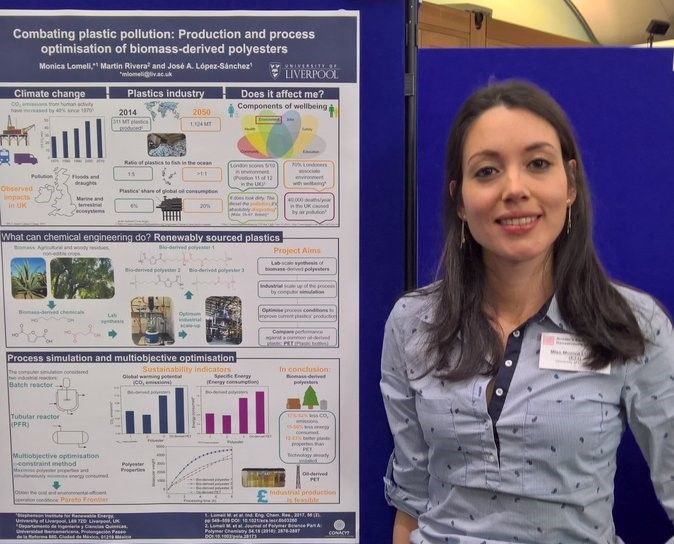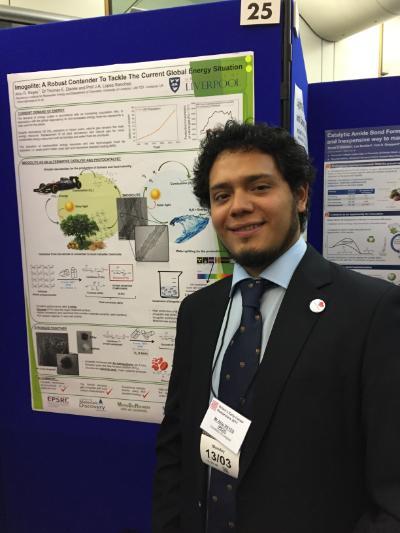Postgraduate students presents research at the Houses of Parliament

STEM for Britain is an annual poster competition in the Houses of Parliament to support and promote Britain's early-career research scientists and engineers.
This year’s event took place at the Attlee Suite, Portcullis House, Westminster on Monday, 13th March 2017, sponsored by Stephen Metcalfe MP, Chairman of the STEM for BRITAIN organising group of the Parliamentary and Scientific Committee. There were 5 subject competitions: Engineering, Mathematics, BioSciences, Chemistry and Physics.
Monica Lomeli, PhD candidate in Tony Lopez-Sanchez’s group in the Chemistry Department presented her engineering research to a range of politicians and a panel of expert judges.
Monica’s research focuses on the synthesis, process simulation and multi-objective optimisation of the sustainable production of biomass-derived polyesters. The objective is to define the best environmental, cost and performance-efficient operation conditions for the industrial production of these renewable polymers, considering different types of chemical reactors.
On presenting her research in Parliament, she said, “I applied to take part in STEM for Britain because I want to bring awareness regarding climate change and the need to develop a sustainable, green and clean industry that will positively impact our everyday life as plastics are one of the largest sources of pollution and are present in so many different applications. I hope to promote the idea among the MPs that the field of chemical engineering is tackling the environmental challenges of the century, and new projects aiming for this should be supported. “
Aldo Reyes, another PhD candidate from the group who attended the event also presented his research.

Aldo's research focuses on Imogolite and derivatives. Imogolite is a tubular aluminosilicate. Currently, its capabilities as a catalyst and photocatalyst are under study. More specifically, the material is a good contender for the generation of fuels and the transformation of waste matter towards simples and more demanded compounds such as saccharides and alcohols. Also the tunability of the material is a good progress to the obtention of different kind of products by just varying the conditions of reaction. In addition, our experiments are carried out in combination with novel technologies and renewable energy resources, i.e. microwave assisted heating and ultraviolet irradiation.
On presenting his research in Parliament, he said, "The experience was incredible. I would highly encourage supervisors to make an effort and try to get students involved in such events. This kind of activities are a great training for future talks in conferences but, overall, the networking that students create is immense and well worth. Although only a few parliamentarians had the opportunity to visit the session, the feedback we got from them was very encouraging."